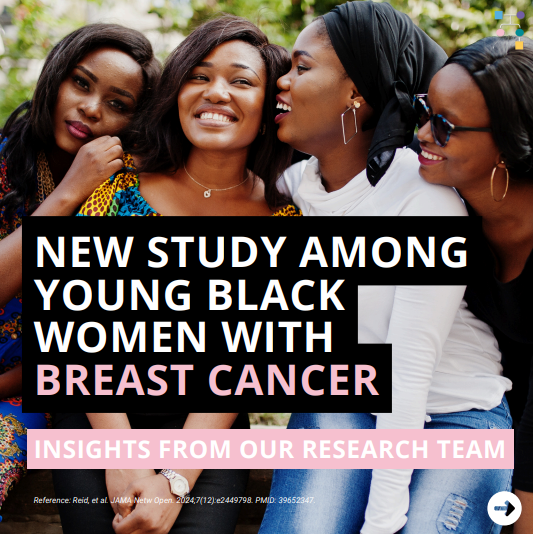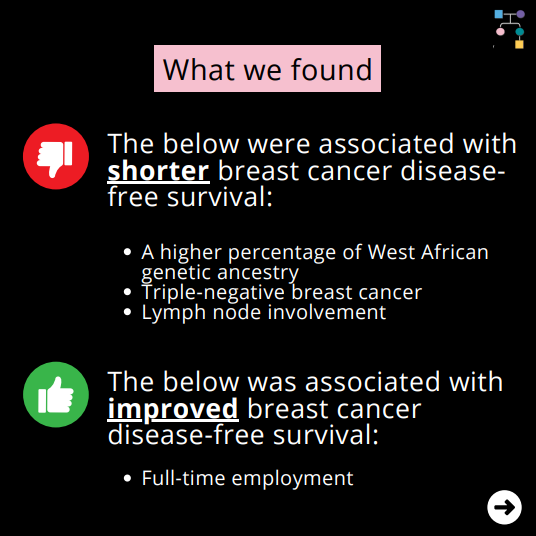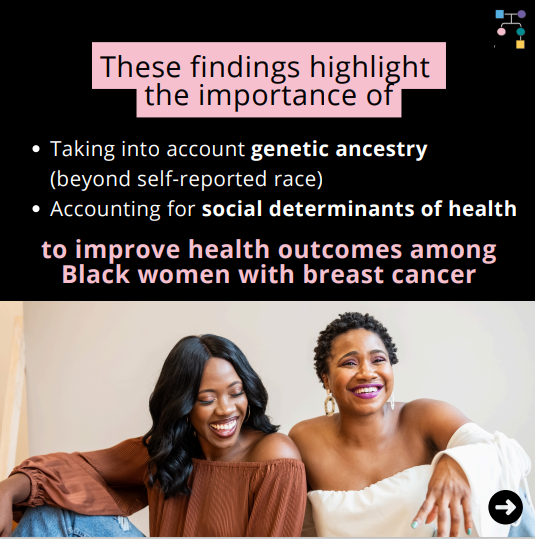



Our team’s newly published study among young Black women with breast cancer found that:
- A higher percentage of West African genetic ancestry, triple-negative breast cancer (TNBC), and lymph node involvement were associated with shorter breast cancer disease-free survival (DFS).
- While full-time employment was associated with improved breast cancer DFS.
These findings underscore the need to go beyond self-reported race and consider genetic ancestry and social determinants of health in order to improve survival outcomes for Black women with breast cancer.
📖 Read the full article here: https://jamanetwork.com/journals/jamanetworkopen/fullarticle/2827614
Reference: Reid, et al. JAMA Netw Open. 2024;7(12):e2449798. PMID: 39652347.
